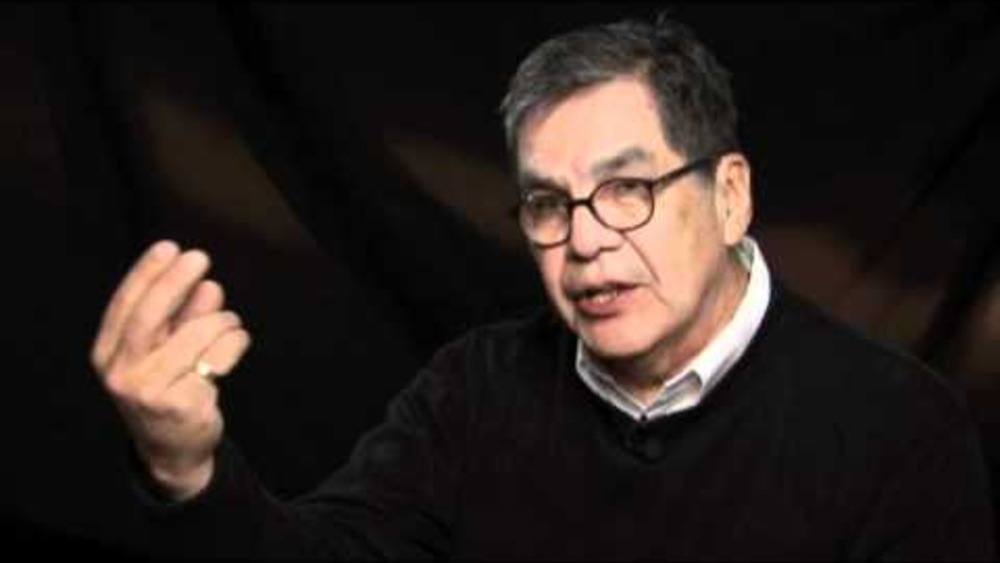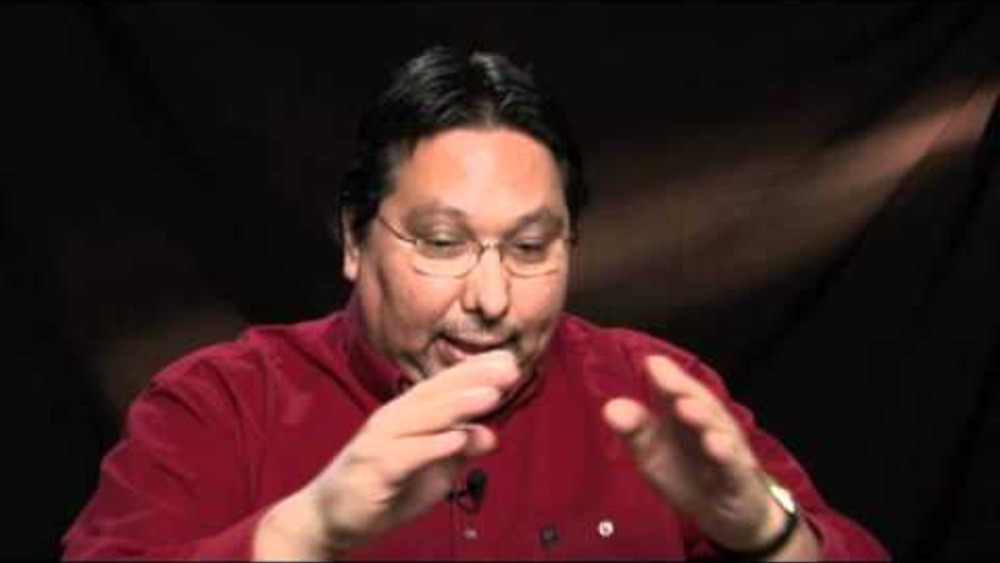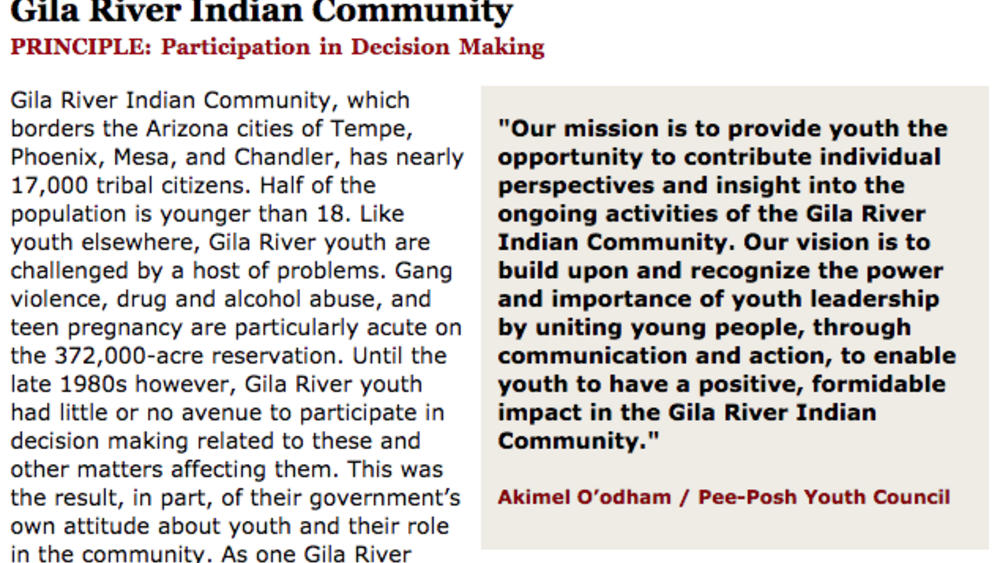Indigenous Governance Database
leadership development
Thumbnail

Tradition and Governance: Joseph G. Norris
Joseph Norris of the Halalt Nation located in British Columbia talks about being raised from the age of five to be a leaders and about the structure of traditional governance in his community.
Thumbnail

Tradition and Governance: Tom Happynook
Tom Happynook of Huu-ay-ut First Nation explains how traditional leaders are raised to learn the qualities and values of leadership. He also explains how traditional governance in his community is more democratic than the Canadian election process.
Image

Best Practices Case Study (Participation in Decision Making): Gila River Indian Community
Gila River Indian Community, which borders the Arizona cities of Tempe, Phoenix, Mesa, and Chandler, has nearly 17,000 tribal citizens. Half of the population is younger than 18. Like youth elsewhere, Gila River youth are challenged by a host of problems. Gang violence, drug and alcohol abuse, and…
Pagination
- First page
- …
- 1
- 2
- …
